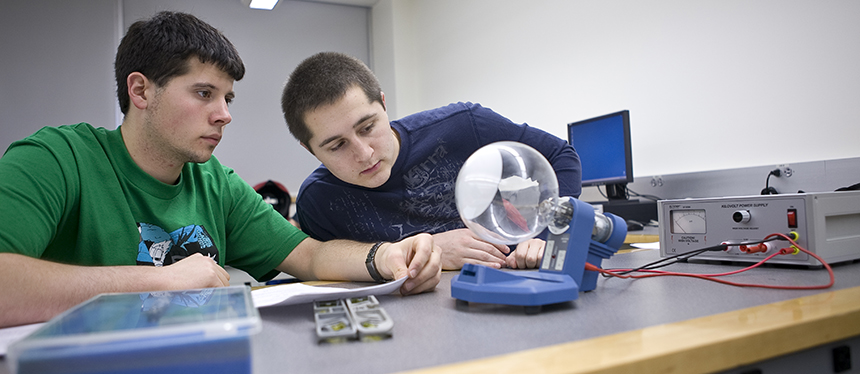What Can I Do with a Physics Degree?
What Can I Do with a Physics Degree?
What Can I Do with a Physics Degree?
Physics is the branch of science that studies matter, energy, and the fundamental forces of nature. It seeks to understand how the universe behaves - from the smallest particles (like atoms and quarks) to the largest structures (like galaxies and black holes).
Physics is divided into several major areas, such as:
- Classical Mechanics
- Thermodynamics
- Eletromagnetism
- Quantum Physics
- Relativity
It's the foundation for many technologies - like electricity, computers, space travel, and medical imaging - and it's essential for understanding the natural world.
Common Career Paths
Acoustical Physics:
- Development
- Testing
- Consulting
- Education
Astronomy/Astrophysics:
- Research
- Education
- Consulting
- Writing
- Public relations
Biophysics:
- Research
- Development
- Consulting
- Administration
Geophysics:
- Research
- Development
- Environmental consulting
- Law
Chemical Physics:
- Research
- Development
- Consulting
Condensed Matter:
- Development
- Consulting
Engineering Physics:
- Engineering (process and testing)
- Research
- Quality control
- Development
- Instrumentation
- Consulting
Science Education:
- Teaching
- Computer software development
- Educational research
- Writing and editing
- Library and information science
Medical/Health Physics:
- Research
- Development
- Clinical service
- Consulting
- Monitoring
- Enforcement
Nuclear Physics:
- Research
- Development
- Consulting
- Instrumentation
Optical Physics:
- Research
- Development
- Consulting
Partical/High Energy Physics:
- Research
- Consulting
- Instrumentation
- Operations and maintenance
Employers
- Colleges and universities
- Government:
- Department of Defense
- Department of Commerce
- Naval Research Laboratory
- Los Alamos National Laboratory
- Lawrence Livermore National Laboratory
- National Aeronautics and Space Administration
- National Oceanic and Atmospheric Administration
- Federal Aviation Administration
- Naval Observatory
- Department of Energy
- National Institute of Health
- National Institute of Standards and Technology
- State and Federal Geological Survey
- Army Corps of Engineers
- Naval Oceanographic Office
- Nuclear Regulatory Commission
- Department of Health and Human Services
- Lawrence Berkeley National Lab
- Nonprofit research centers
- Observatories
- Planetariums/Science museums
- Nonprofits foundations
- Medical and dental schools
- Hospitals
- Engineering firms
- Manufacturing and processing firms
- Consulting firms
- Law firms
- Environmental firms
- Education
- Public school systems, K-12
- Private schools, K-12
- Publishing companies
- Electronics industry:
- Microprocessors
- Magnetic imaging
- Communications
- Automotive
- Navigation/guidance systems
- Industry:
- Medical instrumentation
- Bioacoustics
- Transportation
- Electronics
- Architecture
- Engineering
- Communication
- Musical
- Biotechnology
- Medical equipment
- Environmental
- Pharmaceuticals
- Food science
- Toxicology
- Nonprofit research centers
- Chemical
- Petroleum
- High technology
- Aerospace
- Agriculture
- Energy
- Fuel
- Computer
- Mining
- Hydrogeology
- Medical instrumentation
- Nuclear power
- Waste management/disposal
- Food irradiation
- Security/weapons
- Nuclear accelerators
- Nuclear reactors
- Nuclear instrumentation
- Radioisotope products
- Healthcare
- Environmental protection
- Medical scanners
- Eyeglasses
- Binoculars
- Microscopes
- Lasers
- Holography
- Display technologies
- X-ray
- Ultraviolet spectra
- Fiber optics

Dive into Industry
Now’s the time to start building the skills, experiences, and connections that will set you up for a successful career right after graduation. From internships and networking to developing a professional online presence, discover the steps you can take during college to be ready to dive right into the work force.

Thinking of Graduate School?
With a graduate degree, you will develop deeper mastery which will enable you to qualify for a variety of career paths.

